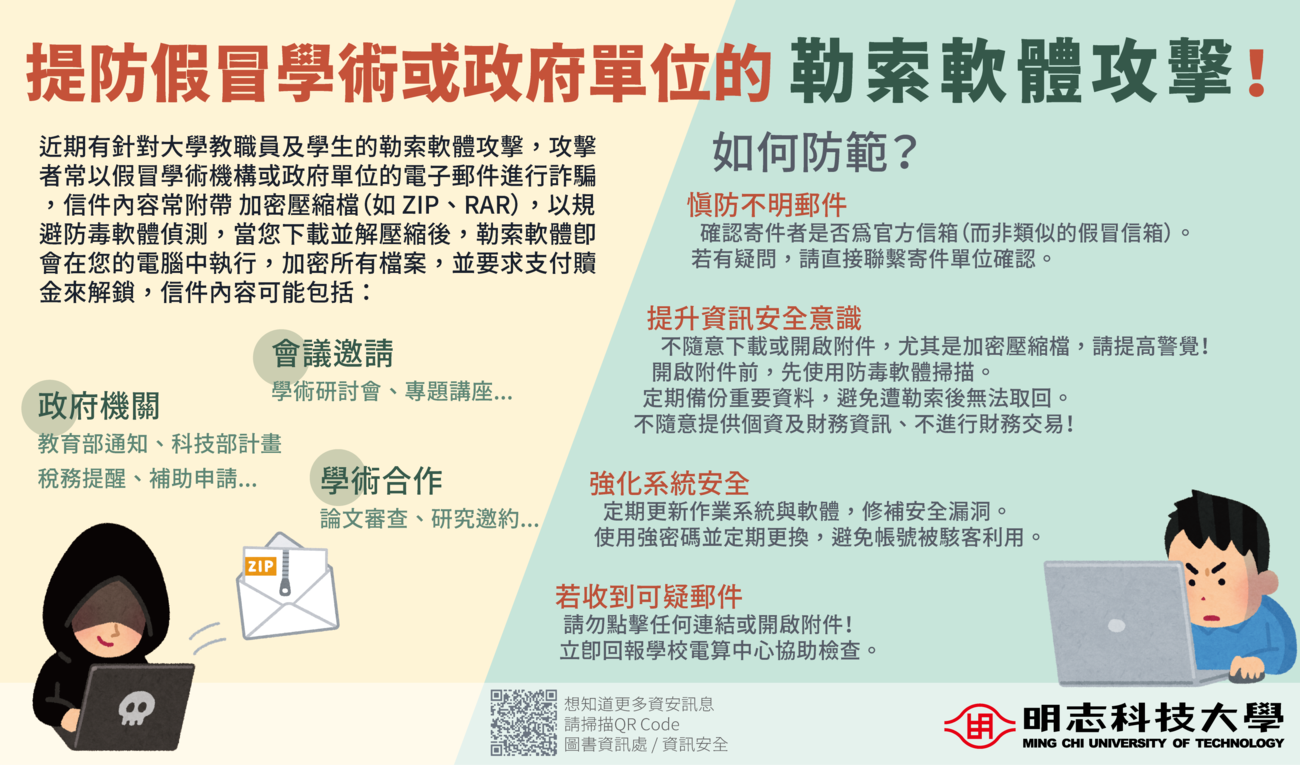【Information Security Advocacy】Beware of Ransomware Attacks Impersonating Academic or Government Institutions!
Recently, ransomware attacks have been targeting university faculty, staff, and students. Attackers often use phishing emails impersonating academic institutions or government agencies. These emails frequently contain encrypted compressed files (e.g., ZIP, RAR) to evade antivirus detection. Once you download and extract these files, ransomware will execute on your computer, encrypting all files and demanding a ransom for decryption.
Common email themes used by attackers include:
Conference Invitations (academic seminars, special lectures, etc.)
Academic Collaborations (paper reviews, research invitations, etc.)
Government Agencies (Ministry of Education notifications, Ministry of Science and Technology projects, tax reminders, subsidy applications, etc.)
How to Protect Yourself?
Be Cautious with Unknown Emails
Verify if the sender's email is from an official domain (not a similar fake address).
If unsure, contact the sender directly to confirm authenticity.
Enhance Cybersecurity Awareness
Do not download or open attachments, especially encrypted compressed files—stay alert!
Scan attachments with antivirus software before opening.
Regularly back up important data to avoid permanent loss due to ransomware.
Never share personal or financial information or conduct financial transactions through suspicious emails.
Strengthen System Security
Keep your operating system and software updated to patch security vulnerabilities.
Use strong passwords and change them regularly to prevent unauthorized access.
If You Receive a Suspicious Email
Do not click on any links or open attachments!
Report it immediately to Computer Center for further inspection.
